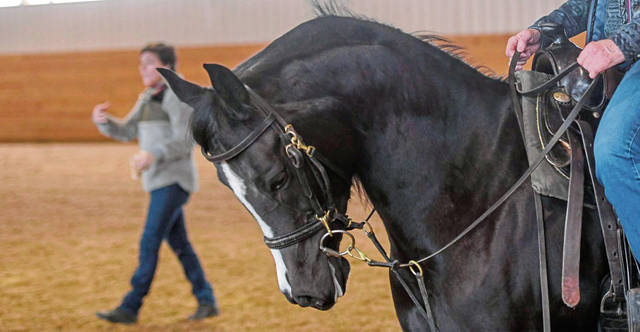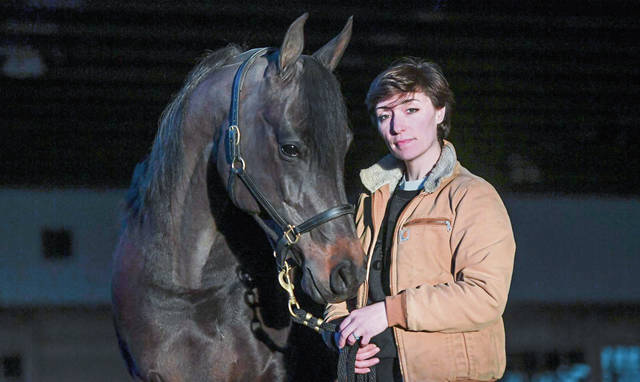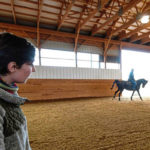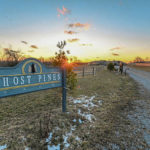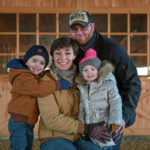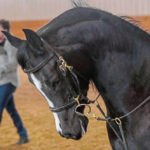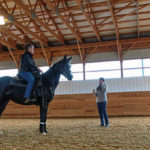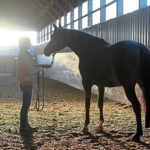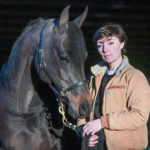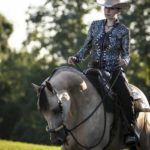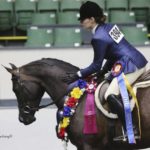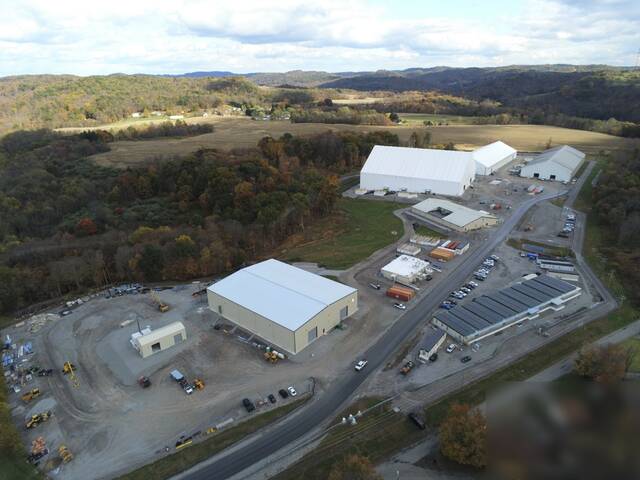Editor’s note: Building the Valley tells stories of businesses big and small and the employees who make them special. If you know of any standout employees, bosses or companies with a great story to tell, contact Senior News Editor Tom Fontaine at tfontaine@tribweb.com.
Arabian horses are playing soccer in Upper Burrell.
That’s just one of the unique training exercises for the oldest and most versatile horse breed, known for elegant looks and endurance racing, at Ghost Pines Farm in Upper Burrell.
The equestrian center was founded by a competitive Arabian rider originally from Connecticut, Nicole Reed, and her husband, Butler native Andy Reed. They have traveled around the country for horse shows, burnishing Reed’s reputation for handling Arabians. She has attracted a national clientele who fly into Pittsburgh to come train with their horses.
The equestrian center is filled with purebred and half-bred Arabians in 27 permanent stalls and eight temporary ones.
Training a 6-year-old half-Arabian horse named Wyatt from Murrysville last week, Nicole Reed coaxed the sleek buckskin animal to suddenly but gracefully stop and stand still. Then move again. It’s all a part of schooling the young house.
Earlier in the week, Solo from Canada nudged a rather large soccer ball about three times the size of a beach ball. The Arabians will use their legs and head to move the ball around, and with training will move the ball into the goal. The practice is part of desensitizing the animal, but it can be a playful romp, according to Reed.
“They still like to have fun,” she said.
“They are very smart,” Reed said. “You can’t force them. You can’t manhandle them. You have to teach them.”
That is where Reed’s experience with Arabians comes in. A self-described “barn rat” as a youngster, she said she grew up riding Arabians in her native Connecticut.
She has been a professional rider and horse trainer, with a specialty in Arabians, for about 10 years. As she continues to ride professionally, winning national competitions, her training and love of Arabians has evolved into a love of teaching and constantly learning.
“They are very proud breed,” said Reed. “They are regal, they like to show off, but they are highly trainable, adaptable. You just have to know how to do it.”
She emphasizes that that the horse teaches you. Reed likens the experience to learning how to drive a car. Hit the gas pedal too hard, a car unexpectedly jumps forward. Squeeze your legs too tight on the sides of a horse and it will lunge forward too quickly.
Training a horse and its rider is an exercise in balancing growth and patience, according to Reed.
“The biggest thing is to develop a feel,” she said.
Then there’s the client learning how to ride the horse and building that relationship.
“The horses mature at their speed and not necessary the expectations of the owners,” she said.
Ghost Pines is not your typical horse-training facility. The sleepy rural area just outside of New Kensington attracted the young couple, who sought an uncluttered country atmosphere close to the city that was priced just right.
They found some nice land around Interstate 80 in the northern part of the state, but it wasn’t easily accessible to an airport, a necessity for a national clientele. Being close to an urban environment also is also desirable for the spouses and family of horse owners who aren’t equestrians and want to do something else while in the area, the young couple said.
Upper Burrell fit the bill. They have no family or ties to the area, just the love of the land.
“To me, this is like a hidden area,” said Andy Reed, an engineer at Westinghouse who designed the 27,000-square-foot, Amish-built equestrian center with rustic wooden doors and trim and spacious environs.
They named the site Ghost Pines because the first day they saw the property, some fog had shrouded a large track of pines on their 93-acre site. The Reeds finished their equestrian facilities in 2017.
Since they are relatively new to the area, the Reeds hope to bring more of the community to see their site and learn about the Arabians.
“We want to public to feel welcome and would like them to come visit and learn about the horses,” Nicole Reed said. “They’re like therapy.”





